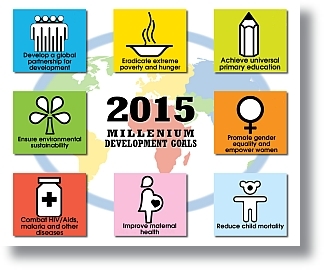Kagame: Why MDGs are a Tall Order for Africa

 |
| MDGs |
However, to do so, we must first reflect upon whether our values and underlying beliefs are consistent with the goals we have espoused, and the many commitments we have made. If we do not examine the assumptions underlying these laudable aspirations, we will struggle to achieve the MDGs, despite our best efforts. The truth is that the political and economic environment we operate in today has dramatically changed and, in many ways, is unrecognizable from when the MDGs were established a decade ago.
The financial downturn in developed economies, the increased pressure on poor nations to compete in an era of globalisation, the growing influence of new partners to the East and South, and the challenges posed by climate change, which disproportionately hurt the poor, are changing the context we all operate in.
We need to ensure we are having a discussion for today and tomorrow's reality, not yesterday's. Meeting the MDGs must remain the international priority - notwithstanding our ever changing circumstances - and not just because it is in mode at the moment. This concern is compounded by the fact that the debate on the MDG agenda has, at times, been dominated by a few voices - primarily from the developed nations and affiliated Nongovernmental Organisations. Despite their good intentions, their perspective is often predicated on paternalism not partnership, on charity not self-reliance, and on promises unfulfilled rather than real change on the ground.
We, in the developing world, also could do more. We need to reflect deeply on how we have driven this agenda so far, and why we are lagging behind in achieving the targets. We can no longer rely on the goodwill of other nations – we neither need to, nor should want to. We must assume effective leadership, take full ownership of the development of our countries and truly deliver for our citizens. We need to continue to promote greater empowerment and health of our women and girls, so that they change the context in which they live, and get involved more in poverty-alleviation programmes.
We should also embrace the transformational power of technology, and in particular give our people increased access to broadband, which has the capacity to enhance their social and economic development. We can do this and much more if there is more regional cooperation.
I wish to encourage greater South to South dialogue and economic cooperation. The agencies mandated to foster development in our regions need to increasingly work together, not only to share best practice, but crucially to empower the nation states of the South so that our vision and energies may deliver the MDGs. The lessons of the last ten years have shown us that even when the resources are available, and action plans are adopted, progress has sadly been too slow.
We must foster new working relationships, and possess values that: are informed by home-grown priorities and owned by local leaders; empower our citizens and enable communities to work productively; and balance our history and cultural heritage with innovation and social progress. These values must be embedded in the political and economic culture of our countries, of the United Nations, the regional development banks and bilateral relationships.
MDGs are attainable. Where governments own their development, where real partnership between supporters and those supported occurs, and where the agenda is designed and executed by the people whom it is intended for, tangible results are obtained and livelihoods are improved.
But, at the end of the day, we shall only achieve the MDGs if we ensure that our values are consistent with the promises we made and reaffirm them.
By H.E. Paul Kagame,
President of the Republic of Rwanda.
